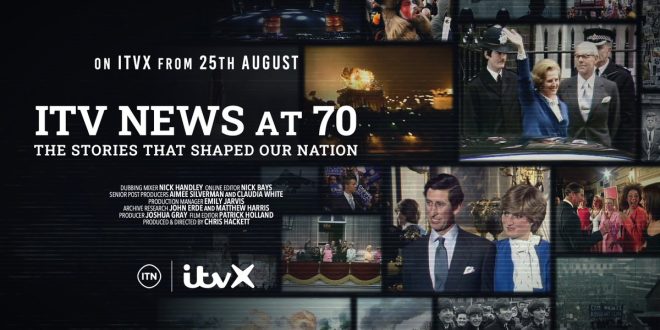Ever wonder how we got here? Like, as a country? News at 70 offers a fascinating look back, exploring how the evening news shaped our understanding of the most pivotal moments in our history. Seriously, think about it: from the moon landing to moments of profound national crisis, it’s wild to see how these stories, delivered right into our living rooms, changed everything. So, are you ready for a trip down memory lane?
The Dawn of Television News
Early Anchors and the Rise of Network News
Remember when network news anchors were like, the only source of truth? Figures like Walter Cronkite weren’t just reading headlines; they were trusted voices, practically family. It’s kinda hard to imagine now, with a million different opinions screaming at you from every corner of the internet. Those early days of network news really set the stage, didn’t they?
The Impact of Visual Reporting
Okay, so radio was cool and all, but the moment you could see what was happening? Game changer! Visual reporting brought the story to life in a way words just couldn’t. Suddenly, you weren’t just hearing about a fire; you were seeing the flames, feeling the heat (well, almost!). The impact? Huge. It made the news more immediate, more real, and way more impactful.
The Turbulent Sixties: A Nation Divided
Civil Rights Movement Coverage
The 60s, man. What a decade, right? News coverage of the Civil Rights Movement was raw, powerful, and often heartbreaking. Seeing peaceful protesters facing violence… it was impossible to ignore. The evening news played a crucial role in bringing these injustices to light, forcing America to confront some uncomfortable truths. Did it solve everything overnight? Nope. But it definitely sparked a much-needed conversation.
The Vietnam War and Shifting Public Opinion
Then there was Vietnam. Talk about a turning point! The nightly news brought the horrors of war right into our homes, every single evening. As the body count rose, and the reasons for fighting became murkier, public opinion started to shift dramatically. You saw families glued to their TVs, waiting for updates, desperately hoping their loved ones were okay. It was a heavy time, and the news was right there, delivering the grim reality.
Assassinations and National Grief
And then… the assassinations. JFK, Martin Luther King Jr., Robert Kennedy. One after another. Each one a gut punch, broadcast in real-time. It was like the country was collectively holding its breath, wondering what would happen next. Did the news sensationalize it? Maybe sometimes. But it also served as a vital source of information and a place for a grieving nation to come together, even if only virtually.
Watergate and the Era of Investigative Journalism
Uncovering the Scandal
Watergate. Ah, the scandal that brought down a president. It was a wild ride, wasn’t it? And it all started with some persistent journalists digging, digging, digging. The news played a starring role in uncovering the truth, one shocking revelation at a time. Talk about holding power accountable!
The Role of the News in Holding Power Accountable
Watergate wasn’t just about a break-in; it was about abuse of power, cover-ups, and lies. The news media’s relentless pursuit of the truth proved that even the President of the United States wasn’t above the law. It was a defining moment for investigative journalism, setting a precedent for future reporting. You might even argue it was its golden age.
The Aftermath and Lasting Impact on Trust
The Watergate scandal shook the nation’s faith in its leaders. But, did it make us cynical? Perhaps. But it also reinforced the importance of a free and independent press. And the necessity to be a discerning consumer of news. After all, trusting blindly isn’t always the best approach. But where’s the line?
The Rise of 24-Hour News and Cable Television
The Gulf War and Real-Time Reporting
Fast forward to the Gulf War. Suddenly, news wasn’t just a nightly thing. It was 24/7, thanks to cable television. We were seeing the war unfold in real-time, with live reports from the front lines. This was completely new territory. Pretty cool and kinda terrifying, right?
The O.J. Simpson Trial: A Media Spectacle
And who could forget the O.J. Simpson trial? Whether you were obsessed or completely annoyed by it, there’s no denying that it was a media circus. It dominated the news cycle for months, blurring the lines between news and entertainment. Was it informative? Sure, sometimes. But it also raised questions about the ethics of media coverage and the public’s fascination with celebrity scandal.
The Changing Landscape of News Consumption
All of a sudden, the way people consumed news was changing, and changing fast. With the rise of cable, people had more choices than ever before. Did this lead to a more informed public? Hard to say. It definitely made it easier to find news that confirmed your existing beliefs. Which, let’s be honest, isn’t always a good thing.
The Digital Age and the Information Overload
The Impact of the Internet and Social Media
Then came the internet. Oh boy. Suddenly, everyone’s a publisher, everyone’s a reporter. News travels faster than ever, but is it always accurate? Nope. Social media has amplified voices – both good and bad – and changed the game completely. It’s like, how do you even know what to believe anymore?!
Fake News and the Erosion of Trust
And that brings us to fake news. Misinformation, disinformation, deepfakes…it’s a minefield out there! The erosion of trust in traditional news sources is a real problem. Figuring out what’s real and what’s not is becoming a full-time job. So where do you even start?
The Future of News and Responsible Journalism
So, what’s the future of news look like? Honestly, I don’t know! One can only hope that responsible journalism finds a way to thrive in this crazy digital landscape. Maybe it’s about supporting independent news sources, fact-checking everything we read, or simply being more mindful of what we share online. Whatever the answer, we all have a role to play in ensuring that truth prevails.
From the early days of network anchors to the current chaos of the digital age, the news has shaped our nation in profound ways. It’s been a mirror reflecting our triumphs and tragedies, our divisions and our shared humanity. Looking back at these stories, you can’t help but wonder: what stories will define us in the years to come? Hopefully, more accurate ones, that’s for sure!
 Cloudabouts
Cloudabouts




